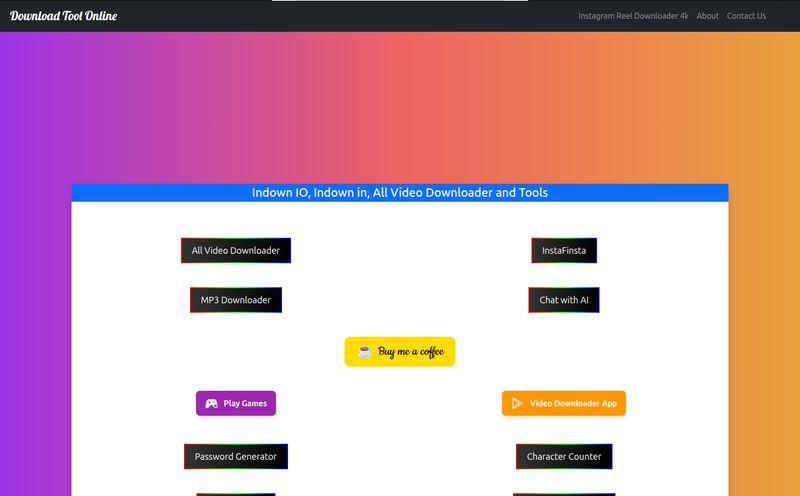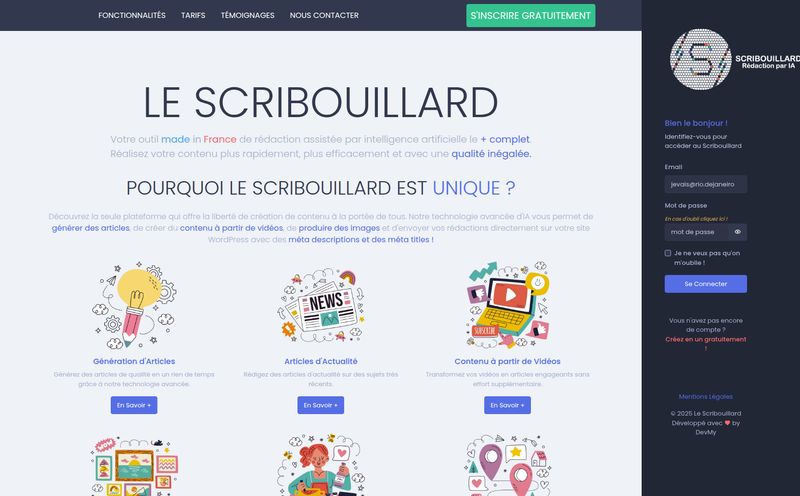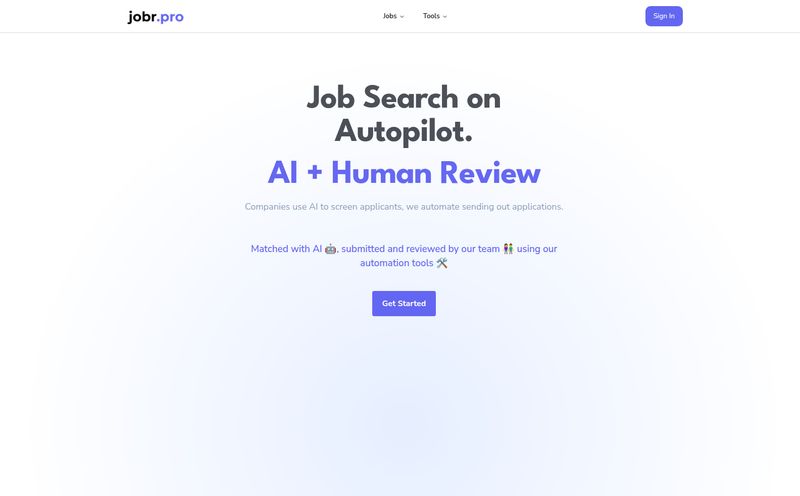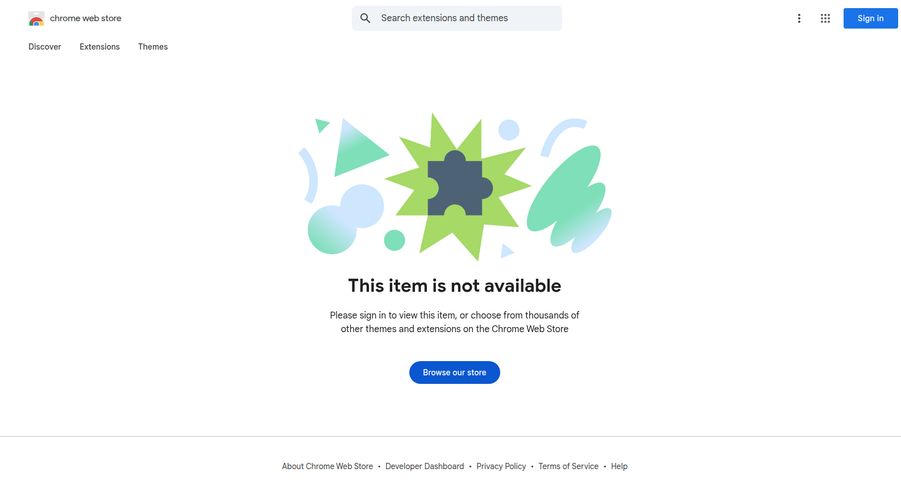We've all been there. That soul-crushing moment when you're staring at a blinking cursor on a blank page. The deadline is breathing down your neck, you have about 37 browser tabs open for “research,” and your brain has decided to take an unscheduled vacation. Whether it’s a college essay, a literature review, or a deep-dive blog post, the initial grunt work can be an absolute slog.
For years, we SEO and content folks have been watching the AI writing space. First, it was clunky spinners, then slightly-more-coherent paragraph generators, and now... well, now we have tools like Aithor. It popped up on my radar recently, promising not just to write for me, but to be my AI-powered research assistant. My interest was definitely piqued. Another AI writer? Groundbreaking. But one with a built-in library of academic sources? Okay, now you have my attention.
So, I did what any self-respecting digital nerd would do: I signed up and took it for a spin. And I have some thoughts.
First Off, What is Aithor Supposed to Be?
Before we get into the weeds, let's clear something up. Aithor isn’t positioning itself as just another generic AI content creator. Its whole vibe is geared towards more serious, research-heavy writing. Think essays, case studies, and academic papers. The biggest hook, and honestly the thing that sets it apart from a lot of the competition, is its access to a massive database of over 10 million full-text PDFs from providers like Stanford, The Lancet, and CiteSeer. This isn't just pulling from the public web; it's tapping into actual, verifiable academic work. For anyone who’s ever hit a paywall trying to read a study, you know how huge this is.
My First Run-Through: A Surprisingly Clean Experience
Signing up was straightforward. The user interface is clean, minimal, and doesn't bombard you with a million confusing options. You’re basically given a simple prompt: tell the AI what you want to write about. I typed in a topic related to ethical considerations in AI marketing—a little meta, I know.
It immediately suggested some more refined topics and then got to work building an outline. The whole process felt less like a machine spitting out text and more like a collaboration. It lays the groundwork, and you, the human, are still very much in the driver's seat. It's a tool, not an autopilot button.
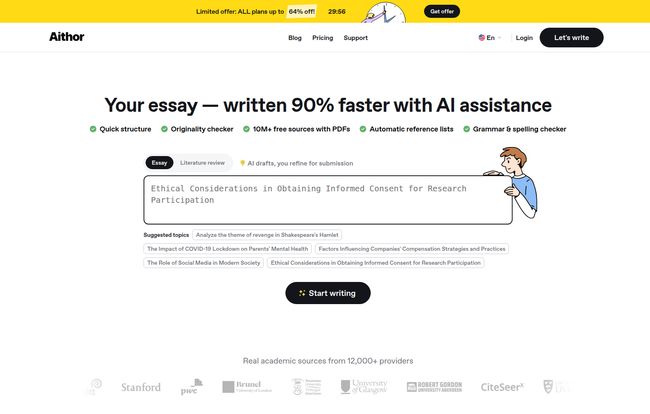
Visit Aithor
The Tools in Aithor's Toolkit
Alright, let's pop the hood and see what this thing is really working with. It's more than just a single-function tool; it's a suite of features designed to tackle different parts of the writing process.
The AI Research Assistant: The Real Star of the Show?
I’m going to say it: this is Aithor's killer feature. The ability to pull information and citations directly from a library of academic PDFs is a game-changer. When it generates a point for your essay, it doesn’t just invent it; it can reference the source it came from. This bridges a massive gap of trust that I have with many other AI tools. You can see the source, check it for yourself, and build your argument on a foundation of actual evidence. It’s a massive step up from the “trust me, bro” sourcing of some other platforms.
From Blank Page to Full Outline
The Outline Creator is the perfect antidote to that blank-page paralysis I was talking about. You give it your topic, and it generates a logical structure for your paper—introduction, main points, counterarguments, conclusion. It’s like having a very organized friend who helps you brainstorm. You can edit, rearrange, and flesh out this skeleton. I found this incredibly helpful for just getting the momentum going. It's the scaffolding upon which you build your masterpiece... or at least your C+ essay.
The Nitty-Gritty: Writing, Citing, and Polishing
This is where Aithor brings it all home. The platform has a whole suite of tools to refine your text. The Autocitation feature is a godsend. It can automatically generate reference lists in various styles (APA, MLA, Chicago, etc.). Anyone who's spent hours formatting a bibliography at 3 AM knows the sheer pain this saves. Then there's the Paraphrasing Tool and Grammar Checker, which are pretty standard for AI writers but work well here. The Originality Checker is also a nice touch, giving you a bit of peace of mind before you submit your work.
Let's Talk Money: The Aithor Pricing Breakdown
Okay, the all-important question: what's this going to cost? Aithor runs on a freemium model, which I always appreciate.
Here’s a quick look at the plans based on their site:
| Plan | Price | Key Features |
|---|---|---|
| Free | €0 / month | Limited content generation, limited AI editing, table of contents creation. |
| Premium | Starts around €13.49 / month (billed twice a year) | Unlimited generation & editing, tone of voice selection, no usage queue, AI disguise, early access to new features. |
In my opinion, the Free plan is a solid test drive. You can get a feel for the outline creator and the basic workflow, but you'll hit the limits pretty fast. It’s enough to see the potential, but not enough for any serious project.
The Premium plan is where the real power is. The unlimited generation, tone selection, and priority access are what you're paying for. If you're a student with a heavy course load or a researcher constantly drafting papers, the price could easily be justified by the sheer amount of time you'd save on research and formatting.
The Good, The Bad, and The Honest Truth About Aithor
No tool is perfect, right? After playing around with it, here’s my honest breakdown.
The good is obvious. It’s a massive timesaver. The access to academic sources is its crown jewel, and the structure-building tools are fantastic for getting started. It helps you organize your thoughts and backs them up with credible data.
The bad? Well, the free plan feels a little too limited. And more importantly, this is not a magic wand. You can't just type in a title and expect a flawless, A-grade paper to pop out. You still need to think. You still need to guide the AI, check the sources it provides, and inject your own critical analysis and voice into the final piece. If you use it as a mindless content mill, your work will sound robotic and hollow. Its a tool to assist your brain, not replace it.
So, Who Should Actually Use Aithor?
So, is Aithor for you? I think it depends on who you are.
- For University Students: Absolutely. The combination of research assistance, outline creation, and auto-citation is tailor-made for the academic grind. It could genuinely help you improve your grades by handling the grunt work, freeing you up to focus on crafting better arguments.
- For Researchers and Academics: Yes, especially for drafting literature reviews. Sifting through hundreds of papers is exhausting, and Aithor can help you synthesize information and find relevant sources much faster.
- For SEOs and Bloggers: Maybe. If your content requires a lot of factual, data-backed claims, the research assistant could be invaluable for finding and citing studies. For more creative, top-of-funnel content, it might be overkill.
Ultimately, Aithor shines brightest for those engaged in formal, evidence-based writing.
Frequently Asked Questions About Aithor
- Are the sources Aithor uses reliable?
- For the most part, yes. It pulls from a database of academic libraries and open-source journals like The Lancet, IEEE, and others. However, you should always, always click through and verify the source yourself. Good academic practice still applies!
- Will my work be flagged for plagiarism if I use Aithor?
- This is the big question with all AI tools. Aithor helps you by paraphrasing and citing sources, and it even has its own originality checker. But if you're just copying and pasting large chunks without proper citation or personal input, you could still run into trouble. The key is to use it as a writing partner, not a ghostwriter.
- Can I really just copy and paste what Aithor writes?
- Please don't. The best results come from using the generated text as a starting point. Edit it, add your own voice, check the facts, and ensure it flows with your unique argument. The 'AI Disguise' feature on the paid plan aims to make the text sound more human, but your own touch is irreplaceable.
- Is Aithor better than something like ChatGPT for academic work?
- In my experience, for academic and research-based tasks, yes. While ChatGPT is a powerful generalist, Aithor's direct integration with a library of academic PDFs and its focus on citation and structure give it a distinct edge in this specific area.
My Final Thoughts
Aithor isn't the magic essay-writing machine some students might dream of. And that's a good thing. What it is, is an incredibly powerful and well-designed assistant. It’s a tool that takes on the most tedious parts of the writing process—the initial research, the structural outline, the god-awful citation formatting—and automates them.
It frees up your brainpower to focus on what really matters: critical thinking, crafting a compelling argument, and developing your own unique voice. If you approach it with that mindset, Aithor could be one of the most useful tools in your digital arsenal.
